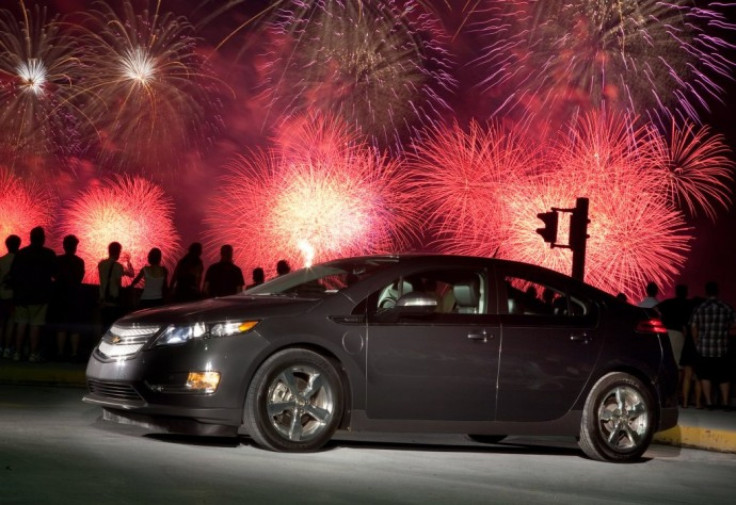EPA rates Chevrolet Volt at 93 mpg for fuel efficiency

The U.S. Environmental Protection Agency (EPA) has awarded the 2011 Chevrolet Volt a mileage rating of 93 miles per gallon (mpg) in combined city and highway driving while running on electricity alone.
The EPA fuel economy label on the gas-electric Chevy Volt gives it a combined rating of 60 mpg. There are separate ratings for electric-only driving, which is 93 miles per gallon equivalent, and for gas-only driving, which is 37 miles per gallon.
On a full battery charge, the Chevy Volt, which GM hopes to start selling next month, drives about 35 miles. After that distance, a gas engine kicks in to run a generator that charges the battery.
The EPA is using miles-per-gallon equivalent (MPGe) as it top-line metric when evaluating battery-powered cars in order to help consumers make comparisons among gas, diesel, all-electric, and hybrid options.
The Volt uses two energy sources - electricity from the grid and gasoline from the pump - with the mix depending on how far you drive and how often you charge the battery.
Earlier on Monday, the EPA rolled out their mileage ratings for the 2011 all electric car Nissan Leaf and has given 99 miles per gallon.
Chevrolet Volt electric car will cost $41,000 when it goes on sale in the US in November. The company has said that it will offer a $350-per-month lease deal that's essentially equal to the Nissan's Leaf. That will put the battery-powered Volt within reach of many people. As an all-electric vehicle, the Chevrolet Volt qualifies for a $7,500 federal tax credit. Taking the $7500 tax credit into account the net cost to the buyer will thus be $33,500.
According to a recent report from Bloomberg New Energy Finance, plug-in electric vehicles, including plug-in hybrids and battery electric vehicles, have the potential to make up 9% of auto sales in 2020 and 22% in 2030 (1.6 million and 4 million vehicle sales respectively).
© Copyright IBTimes 2024. All rights reserved.











